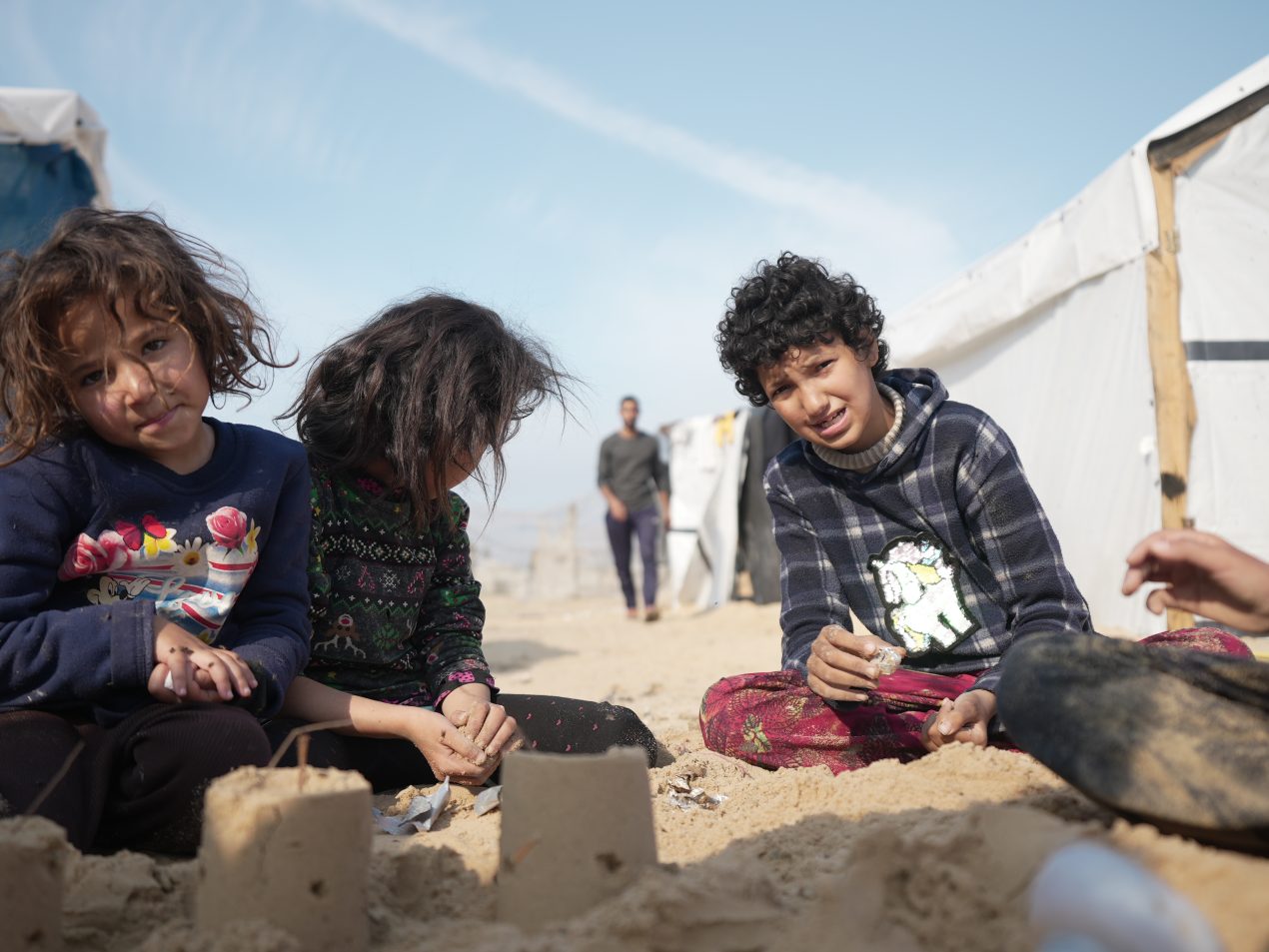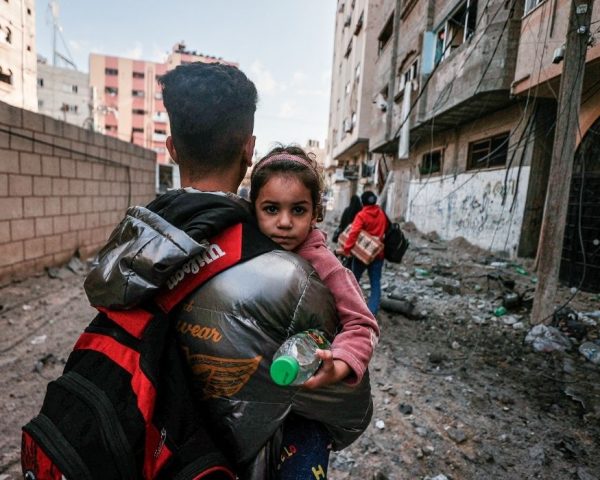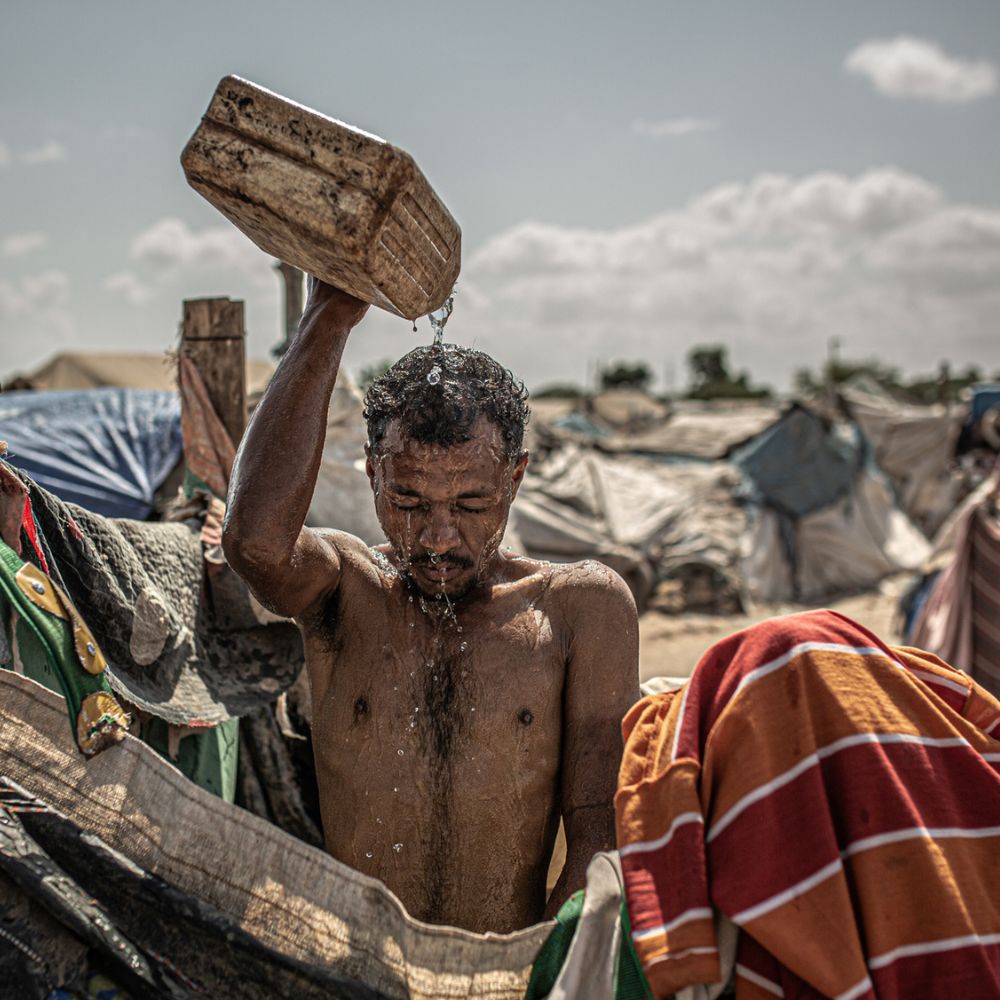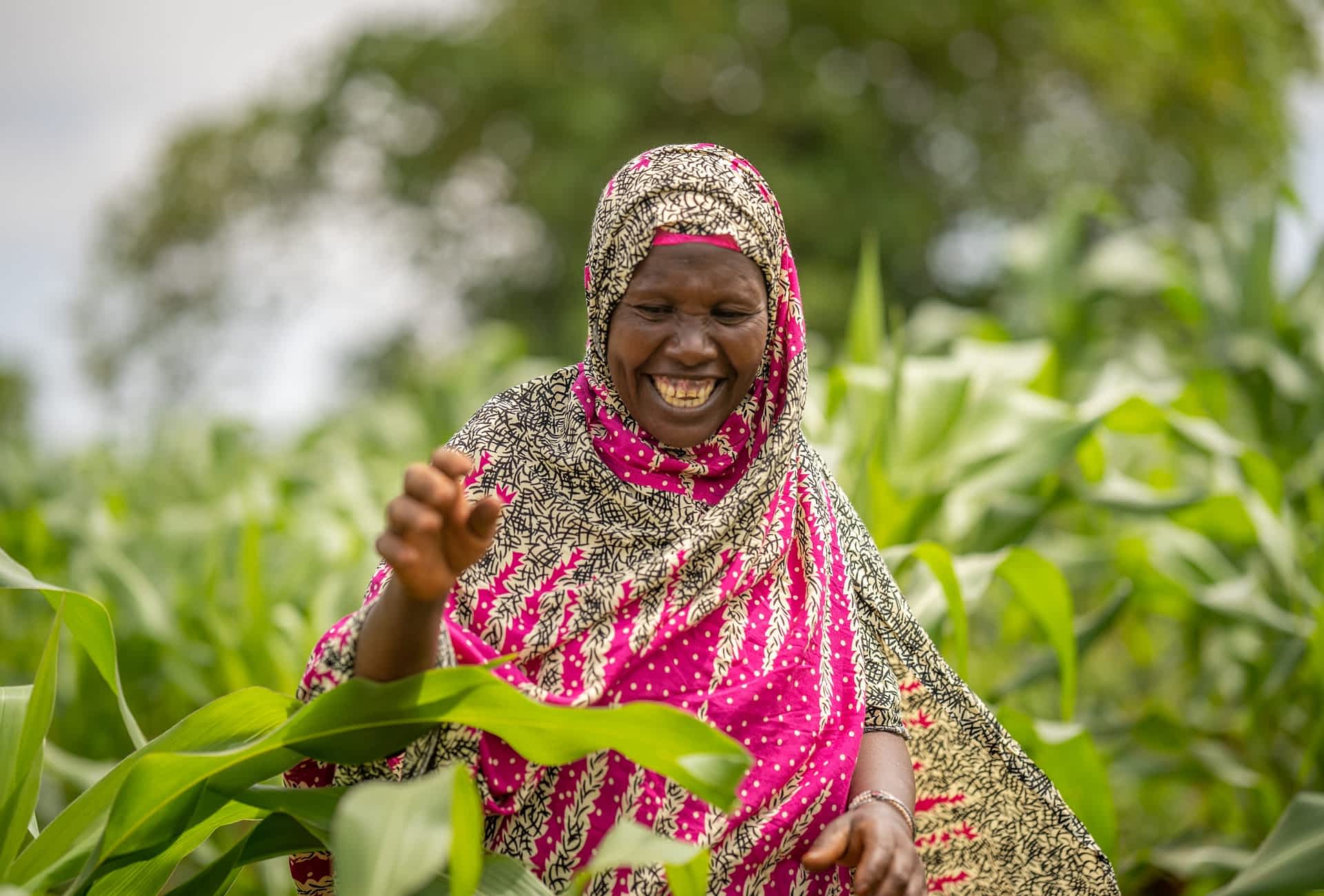Our work in Palestine
We work to address urgent needs, advocate for the rights of the Palestinian people, and promote long-term economic development. This includes helping individuals gain access to decent job opportunities and strengthening the olive oil sector, enabling communities to build a more secure, sustainable, and prosperous future.

Photo: Alef Multimedia/Oxfam
9 green value chains
in agriculture are targeted by Oxfam, including dates and olives
185 vulnerable young
Palestinians at the West Bank are supported to get a job
495,000 people
are facing catastrophic levels of acute food insecurity in Gaza.
1.9 million people
are internally displaced in Gaza, mostly women and children
The people of Palestine are denied basic rights, and more than half live in poverty due to the ongoing Israeli occupation. This not only undermines their dignity but severely limits their prospects for a safe and decent future.
In Gaza, civilians are trapped under siege, relentlessly bombed, and cut off from access to food, clean water, and adequate medical care. It is the gravest humanitarian crisis we have witnessed at Oxfam. Our work in Palestine therefore addresses both urgent, life-saving needs and long-term economic development, with the rights of the Palestinian people as our guiding principle.
Standing with Palestine
In the West Bank, we support young Palestinians through technical and vocational training, enabling them to gain employment and build sustainable livelihoods. Together with cooperatives and private businesses, we are developing the Palestinian olive oil sector — a vital industry that strengthens local communities, supports economic self-reliance, and builds a more resilient Palestine. We also assist Palestinian organizations in documenting and raising awareness about violations of their rights, with a strong focus on the impact of Israeli settlements.
From Humanitarian Relief to Long-Term Resilience
In Gaza, our priority is to scale up humanitarian efforts to address immediate needs. Working closely with local organizations, we deliver emergency assistance — including cash-based aid, food supplies, and essential household items — and restore critical water and sanitation systems.
At the same time, we continue to strengthen our advocacy, pushing for the protection of Palestinian rights, a lasting ceasefire, unimpeded humanitarian access, and respect for international law. We are also calling on the Danish government to end arms exports to Israel.
The Palestinian economy cannot become self-sustainable under the existing conditions as Israeli restrictions and occupation does not allow Palestinian control of its own resources or economy.
Strategic Framework Denmark – Palestine 2021-2025
Foreign Ministry
What is happening in Gaza right now?
According to the UN, more than 1.9 million people have been forced from their homes, yet the blockade of Gaza leaves them with nowhere to flee. Thousands have already lost their lives.
Families are taking shelter in overcrowded UN schools, on the streets, or under makeshift tents. Water, food, electricity, medicine, and fuel are in critically short supply. Hundreds of people are often forced to share just a handful of toilets and showers. The UN warns that without urgent improvement, Gaza faces a deadly outbreak of infectious diseases on top of the ongoing violence.
Even before the current escalation, 80% of Gaza’s civilian population relied on humanitarian aid to survive.
What is Oxfam doing?
We are working to support the 2.2 million people currently trapped in Gaza, but ongoing missile strikes, bombing, and extreme violence make it impossible to deliver aid at the scale that is needed. That is why we are urgently calling for a permanent ceasefire to allow life-saving humanitarian assistance to reach those who need it most.
Despite these challenges, our country office and colleagues in Gaza — alongside our trusted local partners — are distributing hygiene kits, food parcels, first aid supplies, clothing, cash, and vouchers. We are also installing emergency toilets and delivering clean water. As soon as conditions allow, we will begin repairing the destroyed water and sewage infrastructure.
Is Oxfam helping both Israel and Palestine?
Oxfam delivers emergency aid wherever it is most needed. At present, we are not providing humanitarian assistance inside Israel, but we do work in partnership with Israeli NGOs on human rights projects.
Our goals in Palestine
- To support young Palestinian women and men in the Jordan Valley and Gaza to get the technical skills and education they need to get a job in the Palestinian agriculture and agribusiness sector.
- Contributing to economic development and sustainability with cooperatives in the Palestinian olive oil sector
- Supporting Palestinian organizations to defend their rights and inform about the consequences of the Israeli occupation.
- To ensure access to life-saving humanitarian aid and protection in Gaza
- Promoting international humanitarian law and addressing the underlying causes of the conflict

Help Us Help Palestine
Oxfam Denmark works for a just and equal future. With your support, we can deliver urgent and long-term humanitarian aid when war, conflict, and disasters strike. Together, we can address the root causes of inequality and create sustainable solutions – for people, communities, and the planet we share.

